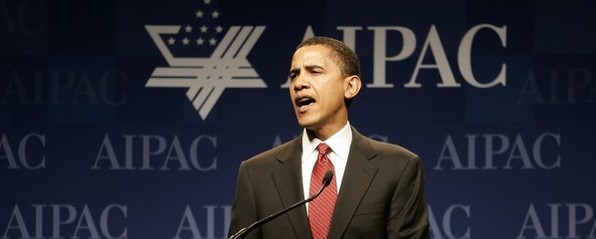by Paul Woodward
Will sanctions against Iran work?
There seems to be a near-universal consensus that sanctions won’t persuade Iran’s leaders to abandon the Islamic republic’s uranium enrichment program — but maybe that’s besides the point. Maybe by now what would be the most cynical interpretation of the Obama administration’s objectives can also be treated as the most credible view.
In this instance, what does that mean? It means that the drive to impose sanctions on Iran has less to do with Iran than it has to do with calming the fears of the Democratic Party’s wealthiest Zionist donors ahead of this fall’s midterm elections.
Unnerved by the repeated warnings that Israel faces an existential threat, these donors won’t sign their checks until they’ve heard a sufficiently soothing answer to the question: “What are you doing about Iran?”
“We’ll do whatever it takes.” “We’re pushing for tougher sanctions than the Bush administration did.” “We’re absolutely dedicated to preventing Iran acquiring a nuclear weapons capability.”
But meanwhile in Israel it turns out that preparations are being made for the unthinkable – living with a nuclear Iran.
Haaretz reporters, Amos Harel and Avi Issacharoff, just attended a simulation held at the prestigious Herzliya Interdisciplinary Center where the assumption was that the US will not give a green light for Israel to attack Iran and that sanctions will not derail Iran’s nuclear program.
The IDC simulation centered on a confrontation between Israel and Hezbollah with a hypothetically nuclear Iran in the background. Similar to other simulations taken place in the West in the last two years, the premise is that an Iranian nuclear umbrella would give more freedom to organizations such as Hezbollah and Hamas, encouraging them to provoke Israel. The Herzliya panelists reached the conclusion that Hezbollah’s possession of a “dirty” or radioactive bomb would bring about the kind of American determination that would lead to an international military task force, which would in turn disarm Hezbollah. We’ll believe it when we see it.
Indeed. If consideration of the prospect of a nuclear Iran reflects the rise of realism among Israeli strategic thinkers, the idea that the US would disarm Hezbollah suggests that realism is still struggling to gain a firm foothold.
As noteworthy as anything else that the simulation revealed was the fact that — at least in the thinking of these Israelis — in the context of the Jewish state’s fears about regional threats, the Palestinians don’t even come into consideration.
Disarming the Israeli-Palestinian landmine, a central Obama administration claim has it, would aid in cooling the region, and maybe even in curbing Iran’s nuclear ambitions. But, at least as simulation participants found out, the Palestinians have turned into a negligible entity. The most significant maneuvers were led by the United States, Israel, and the European Union, with some aid offered by the more moderate Arab states. Hamas and the Palestinian Authority were virtually out of the game.
